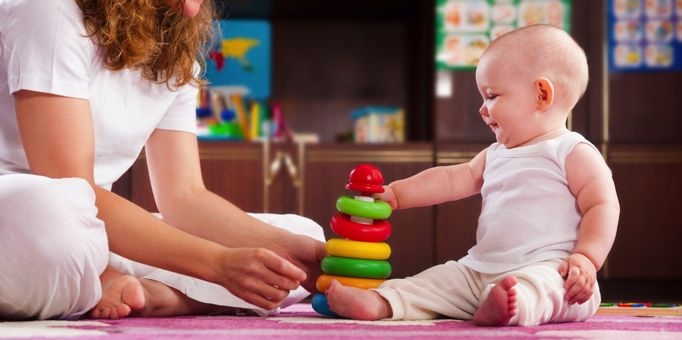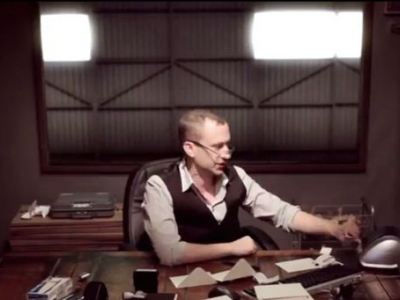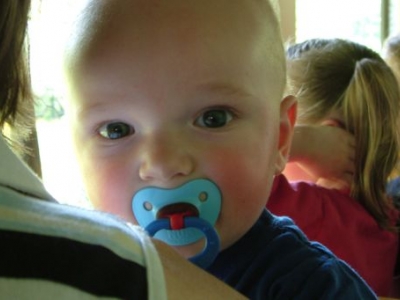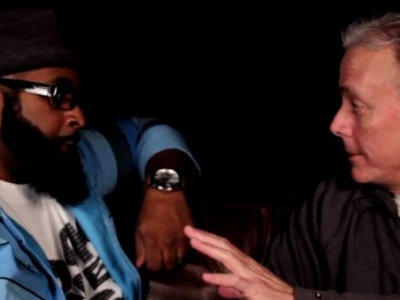
10 things I learned about myself when I became a mum
Becoming a parent changed Karen Beilharz in more ways than she expected.
I first became a mum in August 2010 when my firstborn burst into the world and turned our lives upside down. Before this, despite knowing people my age who were parents, I hadn’t thought much about parenting or what it meant to be a mum. Here are 10 things I’ve learned in the three and a half years since.
1. How much I don’t know
Despite being the eldest sibling and knowing quite a few people with babies, I actually knew very little about them prior to giving birth. Then, as my baby grew, I discovered how much more there was to parenting than feeds and nappy changes. How do you teach a little person to be polite, patient and kind? How do you instill in her things like obedience to her parents, perseverance in spite of difficulty and loving concern for the world? For that matter, how do you get her to want to use the toilet???
2. How much motherhood would change my life
Of course motherhood was going to change my life! I guess I didn’t quite understand the full extent of the changes—how, in the words of Ann M Smollon, I would experience all of these things:
- Material loss. The loss of my income when I stopped working, the changes in our living space as our place became increasingly cluttered with baby paraphernalia, and the change in my wardrobe because I was breastfeeding and my body was no longer what it was.
- Relationship loss. All of a sudden, I was seeing certain friends more and other friends less, and other friends not at all because I was now awake during the timezones of motherhood, and I was limited in what I could do and where I could go.
- Intraphysic loss. Feeling directionless now that I had given up (or at least put on hold) my dreams of becoming a bestselling writer, living in a nice house in inner Sydney and going to sunny cafes for leisurely breakfasts on Saturday mornings.
- Functional loss. The change in my body because of pregnancy and breastfeeding; sleep deprivation; recovering from SPD (symphysis pubis dysfunction).
- Role loss. No longer being able to be the get-together instigator/confidante/good friend/reliable employee for certain sections of my social network).
- Systemic loss. How all of the above affected the rest of my family system.
3. How introverted I am
I’m the sort of person who is happy sitting in an office all day, barely speaking to anyone. So being around another demanding little person all day every day was hugely confronting. Even now that she is older and her needs are more emotional rather than physical, I still have to fight against my “natural” tendencies so that I can be present for her.
4. How to be simultaneously organised and flexible
In my experience, mums need to attain a certain level of organisation because there’s so many things you need to do and have when you’re caring for another person as well as yourself. However, because things always tend to change at the last minute, you need to be flexible enough to roll with the unexpected: vomit explosions, lack of baby change facilities, stolen nappy bags. Since I tend more towards the organised, this took me a while to learn.
5. How motherhood is not “natural” to me
People would tell me, “You’ll know what to do” and “Maternal instinct: it just kicks in”. They were wrong. I had no idea what I was doing and I think the maternity fairy overlooked me. For me, motherhood doesn't feel “natural”. It’s probably because I never had to care for younger siblings. I didn’t know a lot of other families growing up. I never babysat. My parents divorced when I was late in primary school. This meant that instead of just “knowing”, I had to make a conscious effort to acquire parenting skills.
6. How to decide what sort of mother I want to be
Have you noticed the landscape of motherhood becoming more and more politicised over the last ten years or so? Every week I see stories in the media—about helicopter mums, over-indulgent mums, “super” mums, “bad” mums, yummy mummies, slummy mummies and so on. But despite society’s aspirations of what the “perfect” mother should be like, it’s me who ultimately decides: what do I regard as important and therefore what sort of mother do I want to be? The answer determines how I parent.
7. How sinful and selfish I am
I thought I had learned this lesson when I got married. Nevertheless, God highlighted for me how far I have to go as sleep deprivation made me crankier, more irritable and less kind; a publicly contrarian toddler made me embarrassed and then unreasonably angry; and endless playdates, playgroups and playtimes made me long for the solitude of a good book.
8. How much I fall short
Becoming a parent made me all too aware of the things I wish I could do better. It’s the being more patient, more tolerant and more understanding stuff, but it’s also wishing I was a better cook (or even someone who likes cooking), a better engager of young children and a more “fun” mum. If our Heavenly Father is the ultimate model of parenthood, I am ridiculously lacking in comparison. But at the same time, I know that he works through my weakness and I can only do the best with what he has given me.
9. How much I am not trusting God
Parenthood has opened up numerous areas in which I am acutely aware of little control I have: will my child be harmed when I am not with her? Will she heed my teaching about the world and steer clear of calamity? Despite my dragging her to church, reading the Bible and praying with her, will she even ever turn to Christ? I am forced to trust that God is in control and that knowledge drives me to my knees in prayer.
10. How much I need God’s wisdom
As well as not trusting God, I am also painfully aware of how much I need his wisdom to weigh up what’s best—not just for my child and our family, but for me and how to be as a mum. The wisdom of the world only gets me so far; in contrast, the wisdom of God dispels some of the anxiety, second-guessing and ever-constant guilt that the world induces. I am thankful that the Bible is not a parenting manual (or even a “how not to” parenting manual), but the revelation of God’s great plan in Christ for the world: it tells me where I fit, and that in turn shapes my parenting now and into the future.
Parenthood seems to involve the constant acquisition of new skillsets, and the longer I am a parent, the more I appreciate the wisdom, advice and example of my fellow parents. Through them, I have discovered the sorts of issues and challenges that come up when your baby turns into a toddler/primary schooler/teenager/young adult. I have gleaned what sort of skills I will need to handle more than one child at once—skills I will need when baby #2 comes along! And when that happens, I'll no doubt discover just how much more I still have to learn.
For more articles from Growing Faith, subscribe to our monthly e-newsletter.
To hear about the latest books and resources from Youthworks Media, subscribe here.







